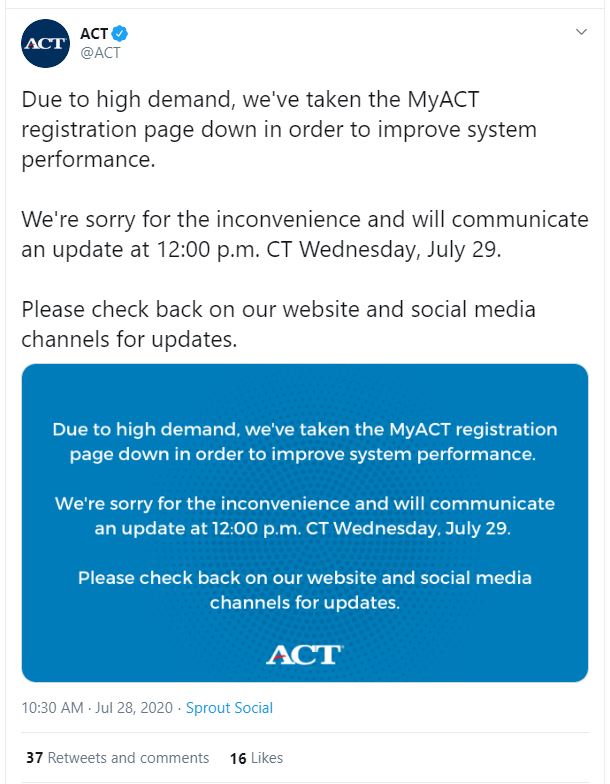31,940 applications in all – that’s a big number. See the press release posted on Monday here. Decision will be released by the end of January.
Our New Home!
In early 2021, AMR College Consulting will move into a new office location at 1102 Reynolda Road here in Winston-Salem! This inspiring space is located upstairs above a pair of Winston-Salem’s favorite destinations, Bobby Boy Bake Shop and The Caviste Wine Shop. Needless to say, we can’t wait!


We will continue to meet with clients remotely or in safe, outdoor locations during the COVID pandemic (and beyond for those residing outside of the area). However, we look forward to calling this unique, historic property home for many years to come! We’ll update you when our door is open!
Standardized Testing Post-COVID 19
According to FairTest, over 2/3rds of US colleges and universities are either test-optional or test-blind for Fall 2021 applicants. The inability of students to access ACT or SAT testing sites during the COVID epidemic has driven this decision for the vast majority of schools.
Jon Boeckenstedt, the VP of Enrollment Management at Oregon State, asks in a recent blog post whether returning to the status quo once the epidemic ends is likely or even advisable. His reasoning – colleges across the country cannot afford to ignore the decisions that are being made in California and on the west coast.
He includes in his post a terrific data chart that allows one to see how many first year students matriculated out of California to schools across the country in 2018 (you can actually manipulate the data to see total first year student movement out of any state). Can you guess the #1 destination for students from California in North Carolina? Would you believe that number represents close to 10% of their traditional first year class size and that, before COVID struck, it required an ACT or SAT score to be considered for admission?
It’s a good piece, worth the time both to read and to play with the tableau data chart he produced. Virtual high five for the first person who reports back to me with the out-of-state institution the greatest number of North Carolina first year students matriculated to in 2018! It probably won’t surprise you, but #2 might!
How Will Colleges Evaluate Applications This Year? And How Many Will They Admit?
Morning Edition on NPR aired a terrific piece this morning – How The Coronavirus Has Upended College Admissions – that covers how COVID-19 and its impacts on SAT and ACT availability, pass/fail grading systems, and the ability for students to be active in their schools and communities will require universities to adjust their application review processes. It’s worth a listen.
Along similar lines, a frequent topic on college admission message boards and email listservs is how COVID and its effects might impact the number of SPOTS available in the 2021 first year class. There are many variables to consider. It seems clear that many schools will face unwanted enrollment declines as families decide against sending their students far from home, against paying high tuition rates for online classes, choose to defer enrollment for the year altogether, etc. What will this mean for next year? Will this year’s non-matriculated or deferred student take a spot from a 2021 applicant?
I lean in the no category here – the vast majority of schools, including many perceived as “prestigious,” are going to want to enroll all of those students PLUS a robust first year and transfer population that returns their overall full time enrolled undergraduate population to pre-COVID levels as quickly as possible. The reason? Most schools (not all, but most) can’t afford not to. They’ve lost too much money this past spring and are facing more losses this upcoming school year.
There’s a catch, however. One – can schools enroll more students without an increase in their financial aid budgets? I assume financial aid budgets will be fairly stagnant for a few years because of COVID-related losses, so likely not (or at the very least, it’s going to require some creative financial aid packaging to do so). Two – it’s not like there are more high school graduates out there. See this great NPR piece for evidence as to why. Where will these extra enrollments come from if they come from anywhere at all? Wanting to enroll more doesn’t mean a school will be able to.
And then there’s the population that stands to be advantaged. Who are they? Those who are always advantaged, for one – students and families capable of paying the full cost of attendance. Disadvantaged? As is the case at almost every college in America, those who can’t (so very, very few are need-blind and almost all have defined financial aid budgets).
So where will additional students come from? From each other, of course, keeping enrollment numbers where they need to be at some while further lowering them at others. What about adult learners – can they fill the gaps? At some places, sure, but much will hinge on the economy and, again, financial aid opportunities.
It’s enough to make one’s head spin. And yet, as I always say, all students can do is control what they can control. None of us has the power to have an impact on anything that I’ve laid out here. Fortunately, there are thousands of great colleges in the United States, public and private. Students who stay open-minded and see the tremendous opportunities that exist at all types of schools, regardless of perceived national prestige and national ranking, will have a bright college future ahead of them.
An Unprecedented Year in College Admissions
I’ve noted this before but it is worth repeating – today’s high school seniors are facing a college admissions landscape never faced by any other class before. They spent the final months of their junior year learning remotely and most are facing, at a minimum, weeks of online learning this fall. Last May, many took AP exams online in a new format created by the College Board but two months earlier. They’ve faced cancelled ACT and SAT administrations throughout the spring and summer. They are trying to figure out what exactly being test-optional means at schools that have embraced standardized test results in their admission review processes for decades. They are rarely able to visit college campuses and are left wondering where they might even apply and how colleges will know of their interest. And now, with test organizations hyping the fact that they are offering multiple opportunities to test this fall, they are faced with tweets like this the last two days:

The issues these students are facing are not over-hyped – they are real. Parents, teachers, counselors, friends – each of these are outside of our control. We can’t fix them. However, we can support these students. Their worries should not be dismissed. A patient ear here, a thoughtful word there, each goes a long way.
Here’s to hoping for better news soon.
What Schools New To Test-Optional Face
Want to get deep into the weeds on test-optional admissions in the age of COVID? This is a terrific piece by Jon Boeckenstedt, Vice Provost of Enrollment Management at Oregon State University. He covers the review of transcripts with pass/fail grading, 2020 AP results, and more. The overarching conclusion? Admission committees have their work cut out for them this cycle.
On COVID and College Applicants – Admissions Deans Speak Out
Yesterday, a statement composed and endorsed by over 300 college admissions deans and enrollment managers that expresses what they “value in applicants during this time of COVID-19” was released by the Make Caring Common Project, an initiative hosted by the Harvard Graduate School of Education. Collectively, the group of admissions leaders is signaling to prospective college students that they understand.
They understand that students may be struggling in innumerable ways. They understand that these struggles may have had a negative impact on student academic work the final months of the school year. They understand that opportunities to do good in communities, to attend enrichment programs, and to work this summer may have been postponed or canceled due to public health concerns. They emphasize the importance of “self-care” when stating that they “encourage all students to be gentle with themselves during this time.” And importantly to applicants, they encourage the sharing of stories with colleges when preparing applications and interviewing with admissions officials.
A summary of the statement can be found in piece written by Scott Jaschik in today’s Inside Higher Ed. The full statement can be found on the Make Caring Common Project website. It’s worth a read and will hopefully reduce some of the anxiety prospective college applicants may be experiencing as application season approaches.
Test-Optional Takes Off
From highly ranked national universities and small liberal arts colleges to regional state schools, more than half of all four-year colleges in the United States will be test-optional for Fall 2021 applicants. Bob Schaeffer, Executive Director (interim) of FairTest: National Center for Fair and Open Testing, summarizes the rapid growth in the number of test-optional institutions in a news release today.
A terrific piece on this movement was published last week by NPR reporter Elissa Nadworn’s – Colleges Are Backing Off SAT, ACT Scores — But The Exams Will Be Hard To Shake. In it, she notes that just because more schools are test-optional does not necessarily mean that students will still not feel the pressure to test and score well.
Meanwhile, here in North Carolina our two flagship institutions, UNC-Chapel Hill and NC State, still require an ACT or SAT result for the class enrolling next fall. An announcement sometime soon that they will join the ranks of test-optional schools for Fall 2021 applicants would not surprise me – the pressure to do so is surely building on campus.
ACT Cancels June Test, SAT Registration Issues
From the ACT cancelling (predictably) June test administrations at a majority of locations across the country to the College Board’s website crashing due to high volume when it opened up Fall 2020 SAT registration last Friday, it was a rough week for students trying to sign up for and take a test to meet college application requirements across the country.
SAT/ACT Availability Crunch This Fall?
Many current juniors will eye dates in the fall of 2020 as opportunities to take the SAT or ACT either for the first time or to improve upon scores achieved in previous administrations. This is certainly going to be the case here in North Carolina, where our state flagship institutions continue to require submission of test scores with the application.
Be mindful that while opportunities to register for either exam may seem more plentiful than in previous years, this is likely not going to be the case. The College Board announced this spring that the SAT would be offered once per month, August through December. The ACT is being offered in July, September, October, and December. While this suggests that ample opportunities exist for students to sit for either exam, keep in mind that schools (which serve as test centers) are likely going to be forced to reduce capacity to maintain social distancing during the pandemic. I read a report on a relatively large testing center in Connecticut that is reducing its capacity by 66%! The College Board states here that they are asking for additional test center capacity from high schools, colleges, and communities, however they don’t answer to local public health authorities.
The College Board opens registration for the August through October SAT exams tomorrow. The ACT opens registration for its fall exams this July. My guess is that all available seats at many test centers will be accounted for quickly and that long road trips to schools with spots will become more common this fall unless additional test centers are added.
A caveat to all of this could be the anticipated introduction of online SAT and ACT testing later this fall. I think expectations need to be tempered here for several reasons, not the least of which is the fact that colleges and universities have yet to announce whether they will accept online test results from Fall 2021 applicants. Stay tuned.
All of this is to say it is to your benefit to be on top of registration dates and to sign up early whenever possible. The COVID pandemic will present both unique challenges and interesting opportunities for students applying to college this fall. Procuring a seat at a test center may prove to be the former.
